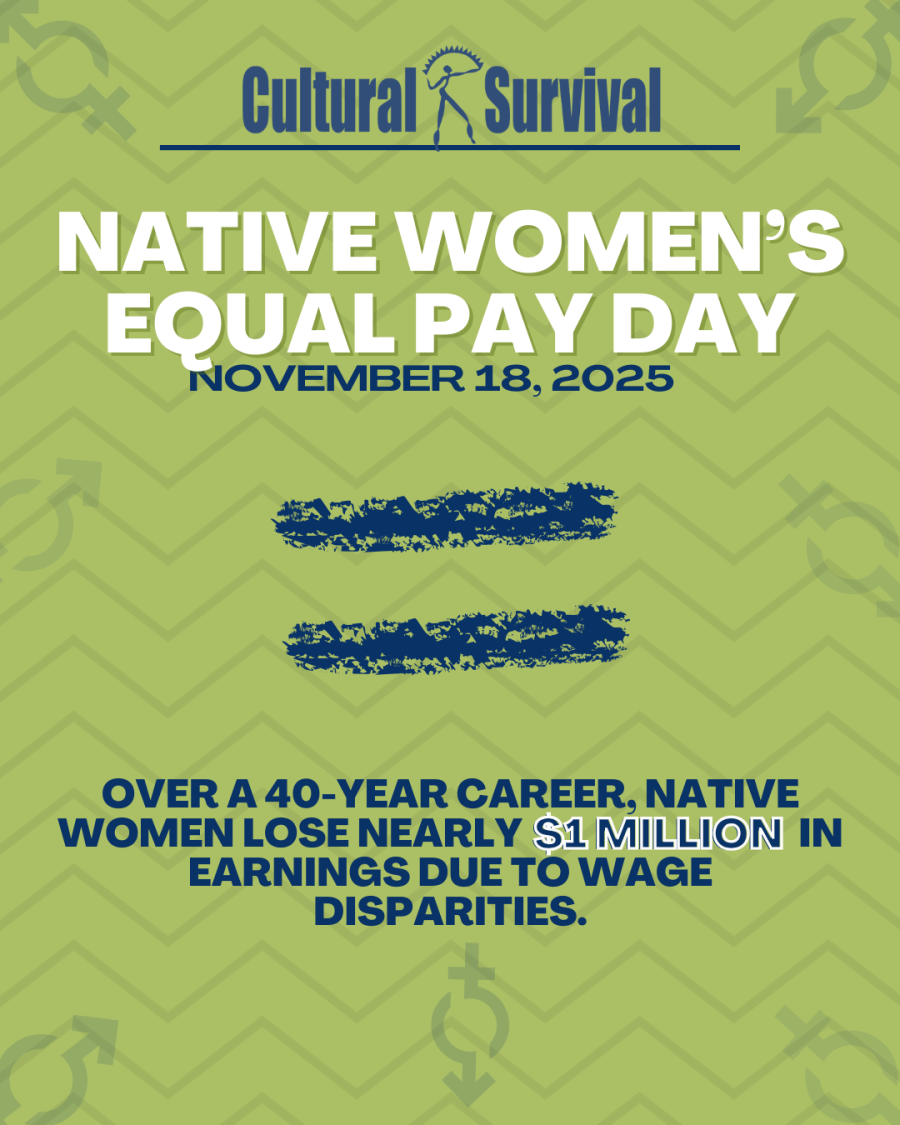As we Americans come to terms with the fact that our vast consumption of fossil fuels is fueling vast changes on our planet, indigenous peoples who live in those marginal places are facing climatic reordering of their very existence. Peoples accustomed to some relief from arid conditions now find themselves living in a permanent desert. Peoples accustomed to predictable rainfall find their homes and crops inundated by floodwaters. And the indigenous peoples living in the challenging conditions of the Arctic are finding that the very ground, or rather sea ice, upon which they stand to hunt and fish and travel from village to village is melting out from under their feet, making every aspect of daily life more difficult and dangerous. Moreover, because annual Arctic temperatures are increasing more than twice as fast as temperatures in the rest of the world, Inuit peoples can only expect that things will get worse.
Which is why, while Al Gore is taking this cause to the court of public opinion, Sheila Watt-Cloutier and fellow Inuit are taking it to the Inter-American Commission on Human Rights, a body of the Organization of American States charged with monitoring how well governments in the Americas are complying with human rights standards.
“How is global warming a human rights issue?” you may be asking yourself. The Inuit argue that the impact of climate change violates their rights to the benefits of their culture, to property, to the preservation of health, life, physical integrity, security, food, income, residence, movement, and the inviolability of the home. In their petition to the Inter-American Commission they state, “The subsistence culture central to Inuit cultural identity has been damaged by climate change and may cease to exist if action is not taken by the United States in concert with the community of nations.”
Why has Watt-Cloutier, a Canadian, singled out the United States in her petition? The United States is currently the largest contributor to greenhouse gas emissions in the world, yet it has refused to take steps that would reduce them or to join the 166 nations that have ratified the Kyoto Protocol. Indeed, until his State of the Union address in January, President Bush pretended that he was unaware of any connection between America’s consumption of fossil fuels and the vast Arctic melt. And since then his administration has not introduced a single policy or practice that would alter the progressive destruction of Inuit peoples’ habitat that American emissions are causing. Nor is the United States subject to any form of external accountability for its failure to act.
Watt-Cloutier’s petition could change all that. As this issue of Cultural Survival Quarterly went to press, the Inter-American Commission on Human Rights had scheduled a March 1 hearing at which Watt-Cloutier will ask the commission to make an onsite visit to Inuit territory to confirm the harms that the Inuit peoples are suffering, and to issue a report setting forth its findings and declaring that the United States is internationally responsible for violations of Inuit peoples rights. Further, she will ask the commission to recommend that the United States adopt mandatory measures to limit its emissions of greenhouse gases and cooperate in international efforts to limit emissions globally.
This is the first time that the commission is considering a petition where the indigenous citizens of one country are claiming that the environmental policies of another are violating their human rights. Should the Inuit be successful, governments in the Americas will be put on notice that they will be held responsible for environmental policies with trans-boundary consequences that violate human rights.
While the United States has a history of brushing aside the recommendations of the Inter-American Commission, the commission’s determinations are considered authoritative by other countries and have a way of turning up in the press, in judicial opinions, in international political forums, and in interstate dialogue. Thus they help to keep the spotlight on the United States as a major cause of the problem.
Watt-Cloutier is hoping that as the spotlight brightens, Americans will decide they want a world that is rich in cultural diversity and secure from the havoc radical climate change would wreak. And that if their elected officials are not prepared to make that happen, they will elect others who will, before it is too late.
In this issue of the Cultural Survival Quarterly, we honor Sheila Watt-Cloutier as a Woman the World Must Hear. As we now learn, we are not alone. Two Norwegian parliamentarians have nominated her, along with Al Gore, for this year’s Nobel Prize for Peace. Cultural Survival heartily endorses her nomination, and urges the Swedish Nobel Committee to recognize her, an indigenous woman and a global leader, when it announces this year’s recipient in October.



